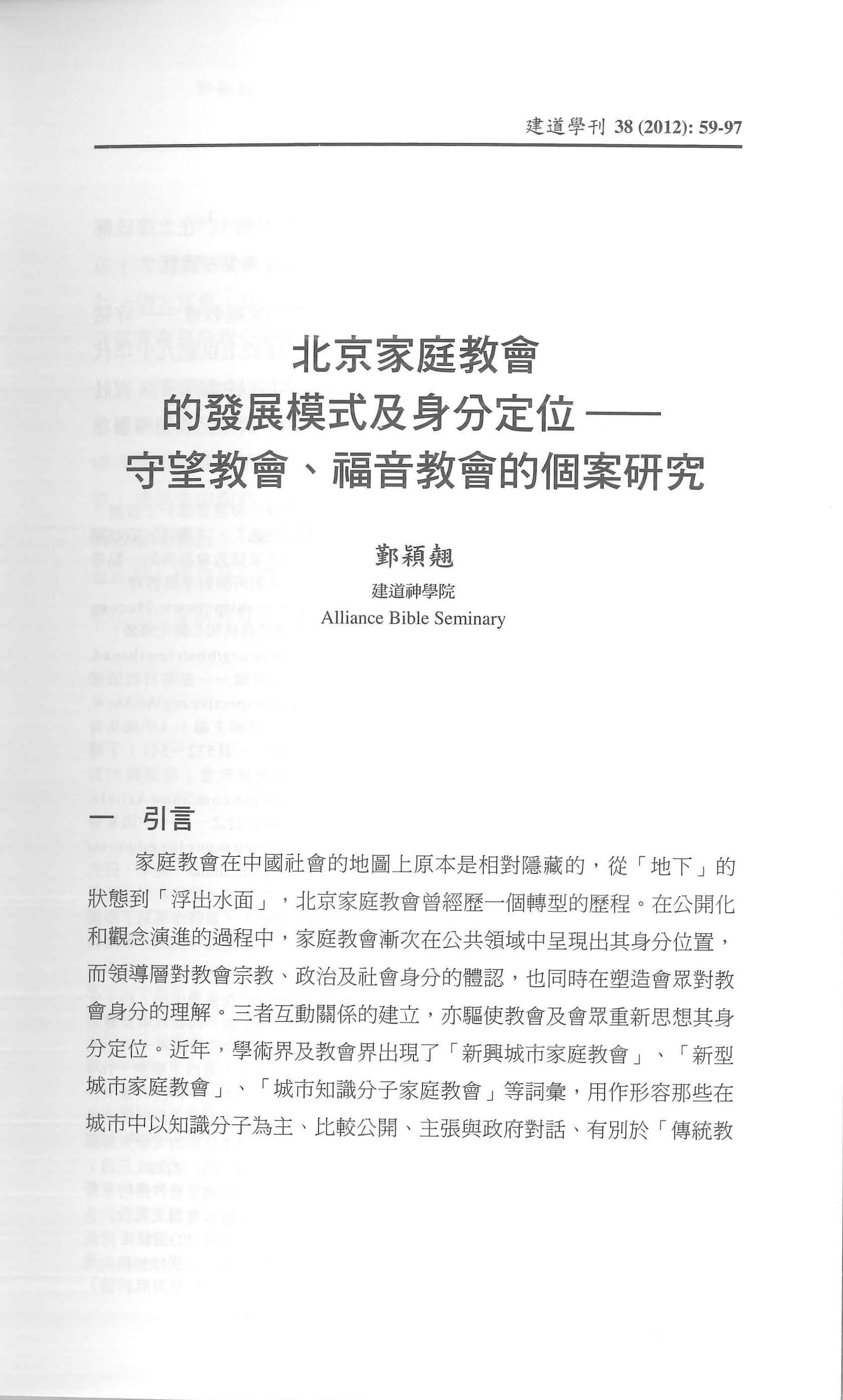北京家庭教會的發展模式及身分定位──守望教會、福音教會的個案研究/鄞穎翹
撮要
家庭教會在中國社會的地圖上原本是相對隱藏的,從「地下」的狀態到「浮出水面」,北京家庭教會經歷過一個轉型的歷程。在公開化和觀念演進的過程中,家庭教會漸次在公共領域中呈現出其身分位置,而領導層對教會宗教、政治及社會身分的體認,也同時塑造着會眾對教會身分的理解。本文選擇了目前北京其中兩間較有影響力的家庭教會—守望教會及福音教會—作為研究對象。兩間教會同樣於上世紀九十年代建立,至2011年都有大約一千人聚會,牧者及會眾均以知識分子、青壯年為主。而兩者最明顯的差別在於教會模式上的不同,反映領導層在核心理念、異象和使命上的不同。本文追溯兩間教會的發展歷程,並探討牧者及會眾對教會身分的看法,從而勾勒出北京家庭教會在今天這個時代中的身分定位。
ABSTRACT
House churches in China have been relatively hidden from the society in the
past. In the recent years, some of the house churches in Beijing have been undergoing transformation and opening themselves to the public, signifying a historical progress from being “underground” to becoming visible in the society. How the church leaders perceive the religious, political and social identities of the church have also played an important role in shaping the views of their congregation. This article uses two of the most influential house churches in Beijing-Shouwang Church and Gospel Church-as case studies. Both churches were established in the 1990’s, have reached a congregation size of about 1000 by 2011, and their leaders and congregation are mainly comprised of young intellectuals. The major difference between the two is their development model, reflecting differences in their core concepts, visions and missions. By tracing the historical development of the two churches and exploring the views of their leaders and congregation on the identity of the church, this article attempts to paint a clearer picture of the identity and position of Beijing house churches in the society today.
原載於《建道學刊》38期(2012年7月),頁59-97。
Latest Articles
新手牧者研究計劃(三):新手牧者的身心靈狀態 / 盧慧儀
2025 年 11 月 19 日
個體與關係:滕近輝思想中「深化」的靈性觀 / 倪步曉
2025 年 11 月 18 日
香港九龍塘基督教中華宣道會之起源和發展史/陳智衡
2025 年 10 月 20 日
Highlights
[電子書]困境與抉擇:「建道研究中心30週年誌慶」跨學科研討會論文集/廖炳堂、倪步曉主編
2025 年 1 月 2 日
從梧州到長洲:建道神學院125年的挑戰與恩典 / 陳智衡
2023 年 10 月 1 日
微小教會的見證/高銘謙
2023 年 6 月 1 日







